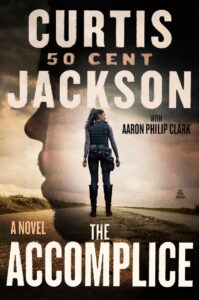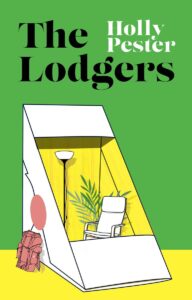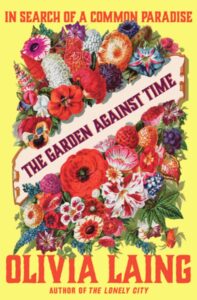October 10, 2024
The Accomplice, by Curtis “50 Cent” Jackson
I will admit that I first picked up 50 Cent’s debut novel because I found the idea of a novel by 50 Cent really funny, but when I opened up THE ACCOMPLICE, I was surprised from the very first line: “Nia Adams doesn’t have a green thumb, but waters her garden diligently, cares for the soil, tends to the flowers, and tames the weeds. Her favourite perennial is the Lupinus texensis, the Texas blue bonnet. The bright blue petals are the showpiece of her front yard. The flowers thrive on full sunlight and damp soil and are resilient during dry spells. Like Nia, they’re survivors.”
With delight, I can tell you that I loved this book, the story of Nia Adams, the first Black female Texas Ranger, whose fate becomes bound up with that of Vietnam-vet turned thief Desmond Bell after a bank robbery goes very strange with nothing of value appearing to be stolen. The lines between good guy and bad guy, and right and wrong, becomes blurred as we learn more about Bell’s story and as Adams comes to understand her colleagues and the institution she works for.
Written in partnership with crime novelist Aaron Philip Clark, THE ACCOMPLICE is a deft thriller with proper twists and turns, and is absolutely gripping. The only thing that tripped me up was some fairly gruesome violence in a couple of parts, but thankfully the story doesn’t linger there, instead tackling big questions about history, race, power and the possibility of redemption. And 50 Cent even makes a cameo in the text, or at least his music does, when “P.I.M.P.” is being played on somebody’s karaoke machine—Desmond Bell unplugs it.
It’s all a little ridiculous, but I’d be disappointed if it wasn’t.
October 9, 2024
Gleanings
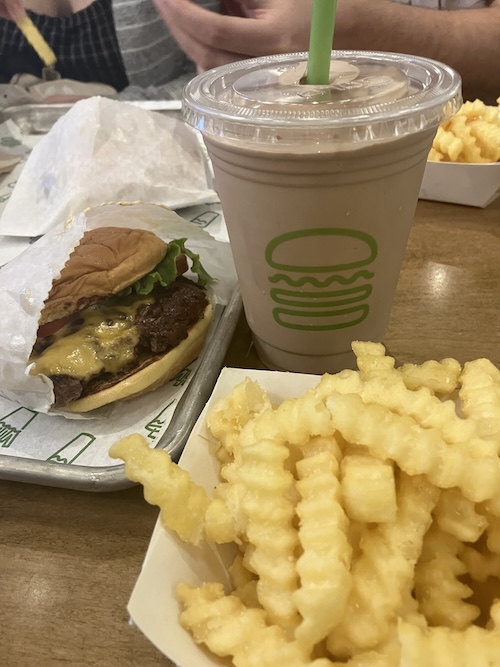
- In 1967, my mother was 22 and worked at a college library in Michigan. She took a payday loan to travel to Juarez, Mexico. That was very much my mother and how she took care of things. She was like Mrs. Dalloway in that way—she would buy the abortion herself.
- I like my hands. They’re weathered from the sun and from washing dishes and bathing babies and dipping sponges in clay water. They’re weathered from planting marigolds in the summer (to keep away the squirrels) and forgetting to wear gloves in the winter.
- I have been staring at these wounds for some time, these repairs, the way things hold together.
- I would like to be librarian again for another year if you can pay more.
- Watch for weirdness.
- But I had to cut them to get to the heart of the story. I called it “the lean edit” and most of it took place over a two-week period when I was watching a friend’s house and cat in Portland in July of 2023. I just sat down and looked at the book and envisioned the core story and went from there. But I also said to myself, “If I miss these characters when they’re gone I’ll put them back in,” but I didn’t. I really like my books to feel tightly crafted. I give the reader exactly the information they need.
- But the other day, I walked like a freak – with nothing plugged into my ears! Imagine. And wow, I realized I missed listening to my own thoughts. I listen to my thoughts all the time, while doing chores etc. But internal thoughts take a different shape when you’re out walking, especially in nature. I don’t know why that is, but it is.
- I am fascinated by all things miniature, especially handmade tiny food or tiny furniture. I remember yearning desperately for a dollhouse when I was a child, but we couldn’t afford one. Now I’d rather look at OTHER people’s dollhouses because we don’t have the space in our house, plus I’m leery about falling down the rabbit hole of making my own miniature furniture.
- And as an aside, it’s funny that we associate the novel, the Count, the bats, the entire thing with Halloween, with the dark seasons yet the story itself begins in May. The majority of the book’s action takes place in spring and summer—the seasons of new life and budding blossoms, warm evenings and dazzling sunlight—and only concludes in early November. A lot happens in a mere six months!
- Maybe I’m intrigued by East Germany because it represents, in nation format, what is true for all of us. We can’t return to the world we grew up in; it doesn’t exist anymore. We’re always in the present, moving forward, and always trying to hold on, in various ways, to parts of the past.
- I could tell you how I long for elder mentors in my life, and how the other day when I heard a peer lament, “I’m getting old and fat,” I found myself thinking about my Grandma who was old and fat, and her mom who was old and fat and her Mom’s Mom who was, well you get the picture, and how I thought that we really could use some more old and fat Grandmas around here.
- I’m not old, white, or rich. I don’t think I fit anyone’s expectations of a sailor, as evidenced by the looks of surprise I get when I bring it up to family, friends, and fellow writers. Their assumptions exhaust me, and I don’t always have the energy to explain how I began racing, how active the sport of sailing is on the Great Lakes, or the special atmosphere at Queen City. As a result, some people have known me for years and not known that I’ve sailed. In the mirror is a petite Asian woman with a round, serious face who looks like she spends more time in the library than doing rigorous physical activity. Peering closer, I see the bruises on my shins and my foul-weather gear hanging on hooks. But on occasion, someone corners me with their curiosity. “I hear that you sail,” they say, and the words spill out of me.
- Draw history through the eye of the longest needle in your basket, the twined thread—flax stem, inner bark of a pine, pounded nettle, strands of a coarse-haired sheep—and make the seam to hold the bag together. In it, the story of the blood clot, the blue lane of the pool, the tiny merganser chicks light as the air itself. This is yours, to give away or to keep.
- And so this weekend, I will think about that man who, on Oct 15, 2009, 10 days after his 58th birthday, met me when he fixed my fridge, changing his trajectory for the rest of his life. And mine with it.
- I guess all of this is to say—this house has been a place of love and accompaniment, heartbreak and endurance, transformation and steadfastness. We wish you all those things in this next season of its stewardship, and whatever more you would like it to be. Change is hard and constant and oh-so-beautiful. We hope this one wraps you in its arms and makes you feel cozy and known and nourished. We couldn’t imagine better people to pass on this little glowing box of light.
October 8, 2024
The Lodgers, by Holly Pester
“If you’re unsettled, you’re unsettling,” the narrator tells us in THE LODGERS, the debut novel by UK poet Holly Pester (and also the debut novel published by Assembly Press here in Canada). It was a novel I wanted to like based on its premise (a woman returns to her hometown to live in a sublet, all the while reflecting on the person who’s moved into her just-vacated previous quarters) and also based on its cover design (“For some reason I ate [the sandwich], I wasn’t happy. But as a result the triangular box was empty, with an inside that resembled, like sarcasm, the one I was in. I looked inside. It had a window too.”) but very styled slightly abstract fiction that refuses to show its hand isn’t always my favourite thing (so many cool books I tried to love, but couldn’t) so I wasn’t sure how THE LODGERS might go over. It isn’t that I don’t like being unsettled per se, but instead that I want my novels to add up to something, being cool is not enough, but this one does add up. Strange, disorientating, and indeed unsettling, but it has a hook for me to hang my hat, metaphorically speaking. Our unnamed narrator’s new sublet is around the corner from the home of her mother, Moffa, a home to which the narrator still has a backdoor key, letting herself in from time to time once she’s back in town, but Moffa is never there. And neither is Kav, the supposed inhabitant of the second bedroom in her sublet, whose arrival could come at any time, the narrator never able to relax into her new abode because of this anticipation. And meanwhile she addresses the new inhabitant of the room she’d left behind, a room that was only ever hers between the hours of 6pm and 9am because otherwise her landlady operating her massage business of the space, and the narrator found comfort in belonging to this home, however tangentially, and her connection to the landlady’s child, the suggestion of a stable domestic situation that our narrator herself has never known. This is a novel that goes in circles, the way the narrator’s life seems to be, every path leading back again to a home that never was, poignant, comic, and biting at once.
October 7, 2024
The Garden Against Time, by Olivia Laing
“How strange time is. The same patterns keep recurring, a helical sequence of war and sickness, from out of which emerged the same green-veined dream.”
For a book that’s about her own backyard, Olivia Laing’s THE GARDEN AGAINST TIME: IN SEARCH OF A COMMON PARADISE takes her reader everywhere and back through time as she tells the story of her restoration of an 18th century walled garden begun when she and her partner move to Suffolk in 2020, a year that becomes “that year.” As she moves through her own plague seasons, she draws connections to gardens in the minds of Milton (PARADISE LOST) and rural poet John Clare, changes and trends in English landscaping ( a word that, she tells us, began with art and paintings), of how the mid-Atlantic slave-trade was the foundation of so much wealth that shaped the English landscape (I am also reading Tanya Talaga’s THE KNOWING, from which I learn that those very same investors were reaping the rewards of the North American fur trades that would decimate the continent’s Indigenous peoples), and how gardens have also been at the forefront of movements committed to imagining better ways of organizing society, which seems especially pressing to consider in the sweltering summer of 2022 as parts of the UK burned and watering her garden, Laing thought, seemed like an irresponsible indulgence. And how new life took root in the brutal bomb sites of London after the Blitz, so many of these sites turned into parks, and she casts her mind too back to Mark Rumary, the famed UK garden designer who’d once owned her home (and lived with his partner back when, a neighbour tells her, “it wasn’t good to be gay”) and whose vision is everywhere in the garden still, Laing reflecting on her own childhood growing up with a gay parent in the 1980s, and what the garden must have meant to both of them as place of freedom and belonging. And there’s so much more than that, every single page bringing fascinating rewards and gorgeous insight, doses of hard reality coupled with vision and hope. The garden is never simply this or that, instead the garden is a place for both, and, and for the remarkable persistence of living things (gardeners among them).
October 3, 2024
The Possibility of Sweetness
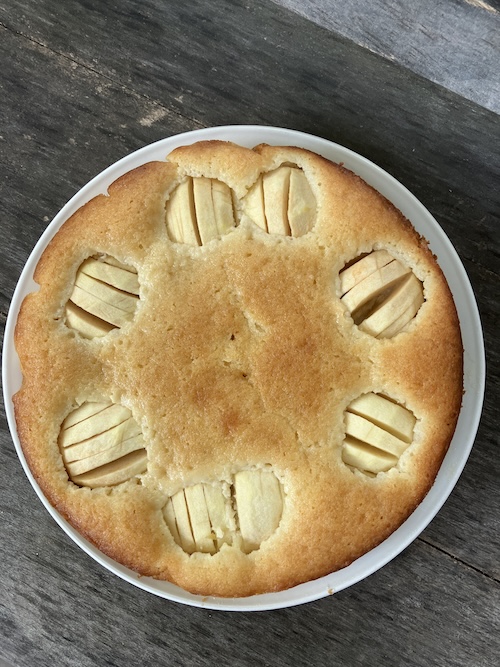
It’s been almost a year now since unimaginable horror was unleashed, and members of my community put up different flags in response, divisions calcified. “I’ve already lost friends to this, and I’m not afraid to lose another,” somebody warned me on Facebook a few weeks later, and thankfully this person wasn’t actually my friend, see you later, but their comment made me reflect about how I want to respond in this moment that has stretched into a near-unbearable year. A year in which people have celebrated and/or shrugged indifferently at massacre and murder, extremism begetting extremism, monstrous disregard for human life, for international law, for the world order. I have seen photos of pieces of children. I have seen photos of pieces of children. I have seen. And I have felt discomfort with my reluctance to not stand with. I’ve felt conflicted about my decision to sign no open letters. I’ve been implored to be sure I’m on the right side of history, to perform it, but history has never been as tidy as that, and neither have I, and what I’ve really felt is that anything I do in such a wretchedly divided world to deepen divisions in my own community is to take a terrible thing and make it even worse, although making a terrible thing worse does seem to have been the main response of anyone with meaningful power at every turn this year, seizing the opportunity for hardening, hatred, and the impossibility for any other story.
It’s just that when I see peoples pitted against either, the endless human story, a thing I’ve never thought is, “We sure need more of that.” A line I can’t stop thinking about: “Both sides brought large speaker systems and screamed duelling chants at each other.” I don’t want to be part of that. I can’t be hard and resolute, not with my friends. Not with my neighbours. Which is not the same as making nice just to get along. Annoyingly, I can argue with every side of this issue, AND I HAVE, except maybe the side that declares that all human life is precious (every one a universe) and that if your politics is turning people into refugees, you’re doing it wrong.
This morning I saw a post from a journalist explaining that during the Jewish High Holidays, checkpoints are closed in the West Bank, which means that the people who live there are effectively under a curfew for three days. And I think of those people as I eat my apple and honey cake, the cake I bake every year because I am culinarily impressionable, and also because I enjoy celebrating a new year (which is to say: POSSIBILITY) anywhere I can, whether it be Persian, Lunar, Jewish. I think of people I admire (many of them Jewish) who have spent this year showing up for Palestinian freedom in loud, powerful and necessary ways. I think of my Jewish friends who have shown up in ways that are quieter and more personal, but no less essential. I think of everybody who has spent the past year with an aching heart, with a voice that’s sore from screaming, whose well of empathy has not yet run dry, all those people who can hold space for the mess of experience and reality and so many awful feelings.
A new year means faith, and hope, the possibility of sweetness.
I believe in this. I believe in us.
